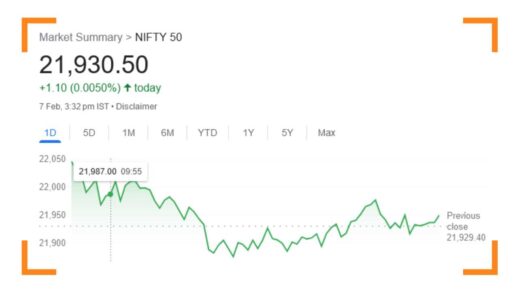All You Need to Know About Professional Tax

Professional Tax
All You Need to Know About Professional Tax
Professional Tax (PT) is a state-level tax levied on individuals earning income from various professions, vocations, trades, callings, or employment in India.
Unlike centrally administered taxes such as Income Tax, Professional Tax is governed and collected by state governments.
This tax plays a crucial role in the financial framework of state economies, supporting various public services and infrastructure projects.
Understanding Professional Tax in depth is essential for ensuring compliance, avoiding penalties, and contributing effectively to state development.
This comprehensive guide provides a detailed exploration of Professional Tax, including its applicability, calculation methods, payment procedures, and state-wise variations.
What is Professional Tax?
Professional Tax is a direct tax imposed by state governments on individuals engaged in professional activities within the state.
Unlike Income Tax, which is governed by federal laws, Professional Tax regulations and rates vary from state to state. This variation reflects the decentralized nature of the tax, allowing states to tailor it to their economic needs and priorities.
The tax is not a uniform charge but rather a system of varying rates and slabs designed to match the income levels and economic conditions of different regions. It is intended to be a fair and progressive tax, with higher earners typically paying more.
Who is Liable to Pay Professional Tax?
The liability to pay Professional Tax typically extends to various categories of individuals based on their income sources and employment status.
Understanding who is liable helps individuals and businesses ensure compliance and avoid legal issues. Here are the main categories of taxpayers who are subject to Professional Tax:
- Salaried Employees: Individuals employed by organizations in a salaried capacity are liable to pay Professional Tax. Employers often handle this by deducting the tax from employees’ salaries and remitting it to the state authorities.
- Self-Employed Professionals: This category includes individuals such as doctors, lawyers, accountants, engineers, and consultants who run their own practices. They are responsible for calculating and paying their own Professional Tax based on their income.
- Business Owners and Traders: Individuals engaged in running businesses or trading activities are also liable to pay Professional Tax. The tax is generally assessed based on the income or revenue generated from their business activities.
- Other Income Earners: Individuals earning income from various other vocations or callings, such as freelancers or independent contractors, are subject to Professional Tax. The specifics of how the tax is applied can vary based on state regulations.
Each state may have additional criteria or exemptions, so it is crucial to check the local regulations to understand specific obligations.
How is Professional Tax Calculated?
The calculation of Professional Tax involves determining taxable income and applying the appropriate tax rates and slabs as specified by state regulations. The process can differ significantly from one state to another, but generally involves the following steps:
- State-Specific Tax Slabs and Rates: Each state has its own tax slabs and rates. These are typically structured in a tiered manner, where higher income levels attract higher tax rates. For instance, Maharashtra may have different slabs compared to Karnataka or Tamil Nadu.
- Exemptions and Deductions: States often provide exemptions or deductions to certain categories of taxpayers or types of income. For example, some states might offer exemptions for senior citizens, individuals with disabilities, or lower income brackets.
- Income Level: Professional Tax is usually calculated based on the individual’s annual income or monthly salary. States may apply a progressive tax rate, where higher income levels result in a higher tax burden.
- Place of Employment or Business: The state in which an individual is employed or runs their business determines the applicable tax rates and rules. Therefore, professionals and businesses operating in multiple states need to comply with each state’s regulations.
Payment of Professional Tax
The payment of Professional Tax can vary based on the state’s regulations and the taxpayer’s status. Here are the common methods of payment:
- Deduction at Source (TDS): For salaried employees, the most common method is deduction at source. Employers deduct Professional Tax from employees’ salaries and remit it directly to the tax authorities. This simplifies the compliance process for employees.
- Self-Assessment: Self-employed professionals and business owners are responsible for calculating and paying their own Professional Tax. They need to maintain accurate records of their income and ensure timely payment to avoid penalties.
- Online Payment: Many states have introduced online payment facilities to make the process more convenient. Taxpayers can visit the state’s tax department website, where they can pay their tax through various digital payment methods. This system helps streamline the payment process and reduces the chances of errors.
- Physical Payment: Some states still offer traditional methods of payment, such as bank challans or payments at designated tax offices. While online payment is increasingly popular, understanding and utilizing these methods may be necessary in certain areas.
Penalties and Interest for Non-Payment
Failing to pay Professional Tax on time can result in significant penalties and interest charges. Each state has its own set of rules regarding late payments, which can include:
- Late Payment Penalties: States often impose fixed penalties or a percentage of the outstanding tax amount for late payments. These penalties can accumulate over time, increasing the financial burden on taxpayers.
- Interest Charges: In addition to penalties, states may charge interest on overdue amounts. The rate of interest can vary, and it is often calculated based on the number of days the payment is delayed.
- Legal Consequences: Persistent non-payment of Professional Tax can lead to legal action, including fines, seizures, or other enforcement measures. It is essential to address any payment issues promptly to avoid these severe consequences.
To prevent penalties and interest charges, taxpayers should ensure they meet all payment deadlines and keep accurate records of their tax obligations.
Importance of Professional Tax
Professional Tax plays a crucial role in the financial and administrative framework of state governments. Its importance extends beyond just revenue generation, contributing to several key areas:
- Revenue for State Governments: Professional Tax provides a significant source of revenue for state governments. This revenue supports various public services and development projects that benefit residents and businesses.
- Funding Public Services: The funds collected through Professional Tax are used to enhance public services such as education, healthcare, infrastructure, and public safety. This improves the overall quality of life within the state.
- Supporting Local Governance: Professional Tax revenue helps in the functioning of local government bodies and administration. It ensures that local authorities have the resources needed to manage community services and development projects.
- Encouraging Fair Contribution: By linking the tax amount to income levels, Professional Tax ensures that individuals and businesses contribute fairly based on their ability to pay. This progressive nature helps balance the tax burden across different income groups.
State-wise Variations
Given that Professional Tax is a state-level tax, the specifics of its application can vary widely across India. Here’s a closer look at how different states manage Professional Tax:
- Maharashtra: Maharashtra has a well-structured Professional Tax system with specific slabs and maximum caps. Employers are required to deduct Professional Tax from employees’ salaries, while self-employed individuals must handle their own payments. The state provides online payment facilities to streamline the process.
- Karnataka: Karnataka’s Professional Tax system also includes various slabs and exemptions. The state offers both online and offline payment options. Employers are responsible for deducting the tax for salaried employees, while self-employed professionals must make their own arrangements.
- West Bengal: In West Bengal, Professional Tax rates are fixed based on income brackets. The state has clear guidelines for employers and self-employed individuals, with both online and offline payment methods available.
- Tamil Nadu: Tamil Nadu’s Professional Tax system is characterized by a progressive tax structure with defined slabs. The state provides convenient online payment options, and employers are responsible for deducting and remitting the tax for their employees.
- Gujarat: Gujarat employs a tiered tax system with different slabs and rates. The state allows online payments and requires employers to manage tax deductions for salaried employees. Self-employed individuals are responsible for their own payments.
- Delhi: In Delhi, Professional Tax is applied based on income levels with specific rates for different income brackets. The state has both online and offline payment options, and compliance is required from both employers and self-employed professionals.
Understanding these state-specific details is crucial for ensuring compliance and avoiding issues related to Professional Tax.
Tips for Professional Tax Compliance
To ensure proper compliance with Professional Tax regulations, consider the following tips:
- Understand the Local Rules: Familiarize yourself with the Professional Tax regulations specific to your state. Each state has its own set of rules, rates, and deadlines, and staying informed is key to avoiding mistakes.
- Keep Accurate Records: Maintain detailed records of your income, expenses, and tax payments. Proper documentation simplifies tax calculations and helps in case of audits or disputes.
- File Returns on Time: Adhere to the deadlines for filing Professional Tax returns. Timely filing helps avoid penalties and interest charges, and ensures that you remain compliant with state regulations.
- Utilize Online Services: Take advantage of online payment and filing facilities offered by many states. Online systems are often more convenient and reduce the risk of errors.
- Seek Professional Advice: If you encounter complexities or uncertainties regarding Professional Tax, consult a tax professional or advisor. They can provide valuable guidance and help ensure that you meet all your tax obligations correctly.
Final Remarks
Professional Tax is an important component of the tax system in India, with significant implications for individuals and businesses alike. It is a state-level tax with varying rates, slabs, and rules depending on the region.
Understanding the intricacies of Professional Tax is essential for ensuring compliance, avoiding penalties, and contributing to state development.
This guide provides a comprehensive overview of Professional Tax, covering its applicability, calculation methods, payment procedures, and state-wise variations.
By staying informed and adhering to local regulations, taxpayers can manage their Professional Tax obligations effectively and support the development and governance of their respective states.

















